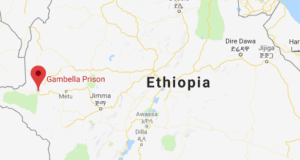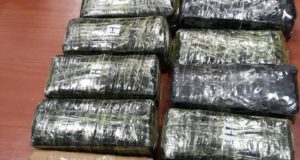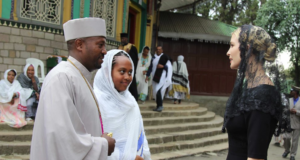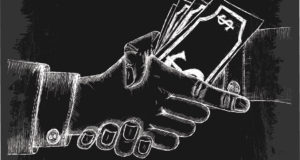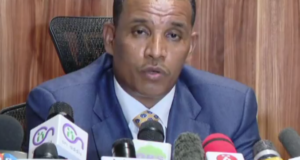ESAT News (November 14, 2016)
Internet freedom in Ethiopia declined as government cracked down on tools used for digital activism, according to the new report by Freedom House.
The report, “Freedom on the Net 2016,” said Internet and mobile phone networks were repeatedly disrupted around the country, particularly in the Oromia region during anti-government protests that began in November 2015.
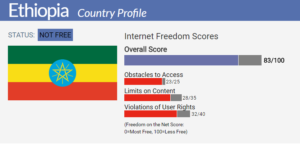
It said social media and communications platforms were temporarily blocked several times to restrict information about antigovernment protests and police brutality. News websites were blocked for reporting on the Oromo protests and a severe drought, adding to a growing blacklist, Freedom House said.
The report Freedom House report mentioned that in May 2016 blogger Zelalem Workagenehu was sentenced to over five years in prison for leading a digital security course.
Internet and mobile phone networks were deliberately disrupted in many parts of the country throughout the year, particularly in the Oromia region during large scale anti-government protests that erupted in November 2015. Meanwhile, poor infrastructure, obstructionist telecom policies, and a government monopoly on the ICT sector make ICT services prohibitively expensive for the majority of the population, the report said.
Prosecutors challenged the release of members of the Zone 9 blogging collective, after they were acquitted of terrorism charges in 2015, the report recalled.
It said in a heavy-handed response, the authorities frequently shutdown local and national internet and mobile phone networks to prevent citizens from communicating about the protests.
News websites and blogs reporting on the protests were permanently blocked in 2015 and 2016. Separately, critical news about the current drought—the worst the country has experienced in 50 years—was systematically censored.
“The legal environment for internet freedom became more restrictive under the Computer Crime Proclamation enacted in June 2016, which criminalizes defamation and incitement. The proclamation also strengthens the government’s surveillance capabilities by enabling real-time monitoring or interception of communications.”
Ethiopia is one of the least connected countries in the world with an internet penetration rate of only 12 percent, according to 2015 data from the International Telecommunications Union (ITU). Mobile phone penetration is also poor at 43 percent, up from just 32 percent in 2014.
—
 The Ethiopian Satellite Television and Radio (ESAT) No. 1 Ethiopian news media: Esat, Ethiopian news, daily Ethiopian news, ESAT tv, ESAT Radio, Ethiopia
The Ethiopian Satellite Television and Radio (ESAT) No. 1 Ethiopian news media: Esat, Ethiopian news, daily Ethiopian news, ESAT tv, ESAT Radio, Ethiopia
